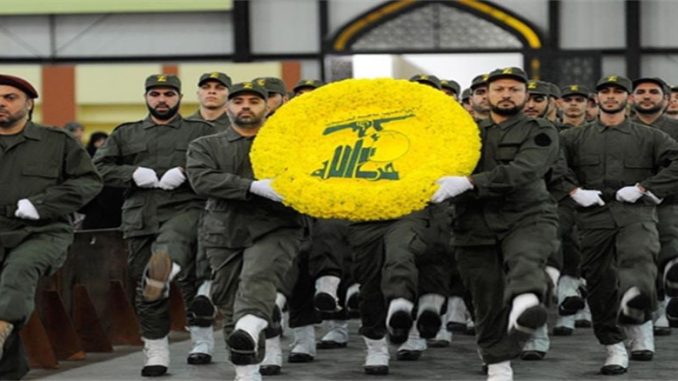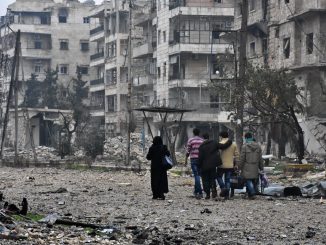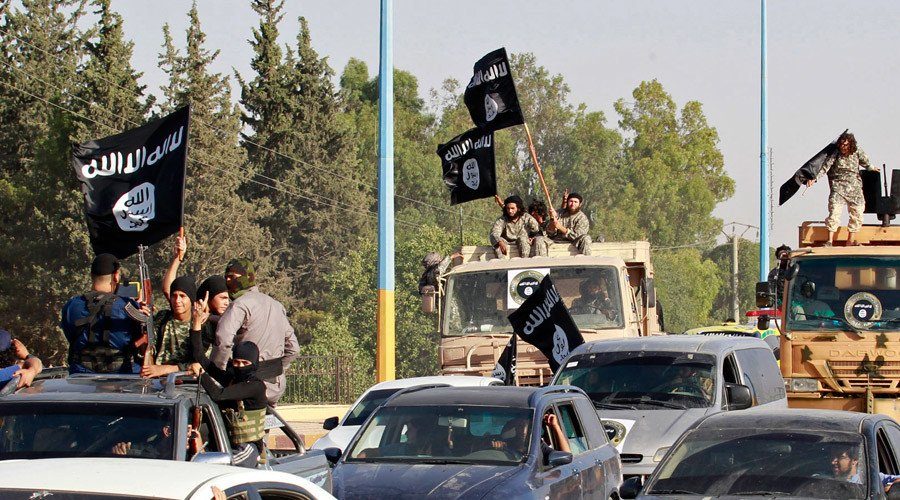
The International Crisis Group has found that Lebanon’s Hezbollah has alienated key support by using sectarian prehistoric in its strategy in Syria.
Hezbollah risks alienating supporters over its current strategy in Syria, a report by the International Crisis Group (ICG) said on Monday.
The Lebanese paramilitary group risks losing core support because of what it identified as increasingly sectarian rhetoric, according to the ICG report entitled “Hezbollah’s Syria Conundrum”.
The group’s interests rest in backing a Syrian peace process, ceasing new offensives and toning down its sectarian rhetoric, the report found.
“When Hezbollah threw its fighters into Syria in 2013, it fought primarily to save itself,” said the report, which is based on interviews with sources close to the group.
“Had the Assad regime collapsed or been defeated by US-backed regional powers, it could have faced a hostile Sunni successor in Damascus and lost its essential arms channel from Iran.
“Today, its core objective of preserving the regime has been met, but there is no end in sight to the war.”
Monday’s report said that while Hezbollah was once famed as an anti-occupation resistance it is now increasingly viewed as a sectarian militia, and to some extent, a brutal occupying force.
“From a ‘party of the oppressed’ and a Lebanon-based and centered ‘resistance’ movement standing up to Israel, it has projected itself across the border and morphed into a powerful regional force.
Once acclaimed by Arabs for struggle against a common enemy, it is now widely viewed as a sectarian Shia militia and, in parts of Syria, a ruthless occupier
There has also been an increase in sectarian rhetoric within the group, which according to the report is in part due to the lack of discipline among the fighters.
An Iraqi cleric with close ties to the group told ICG researchers that the main rhetoric employed by Hezbollah for the deployment of fighters in Syria has been sectarian rather than political.
“What would push young [Lebanese] Shias to fight in Syria? Very few would go for Bashar’s sake, or even Iran’s.
“It’s a single stone of the [Shia] Sayyida Zeinab shrine [in Damascus] that mobilises them.”
ICG’s senior analyst for Lebanon, Sahar Atrache, said that the group presented the war in Syria as a fight against “jihadists”, according to The Arab News.
“By doing so, it sought to convince its constituency about the legitimacy and necessity of its pre-emptive intervention,” Atrache said, adding that the group’s agenda in Syria has been much broader.
“They have been striking jihadist and non-jihadist groups alike, lumping them all together as takfiris. In doing so, their main objective was to give the Syrian regime an upper hand in the negotiations, hoping to compel defeated rebels to a solution on regime’s term.”
This, Atrache said, is a risky bet, as “it would deprive the pro-regime camp of a reliable partner, willing and capable of implementing an agreement, if and when a deal is reached”.
“It might also exacerbate the very problem of jihadists they claim to fight, by pushing defeated rebels into extremists ranks,” Atrache said.
“To mobilise the Shia community and rally its support, Hezbollah had to play the sectarian card,” she said, adding that “the longer-term impact of the deep sectarian fracture are yet to be played out fully both in Lebanon and the region.”
Founded in 1995 as a non-profit NGO, the ICG has established itself as a major source of information on conflict resolution to organisations like the UN and the World Bank, as well as western governments who account for a significant portion of its funding.



